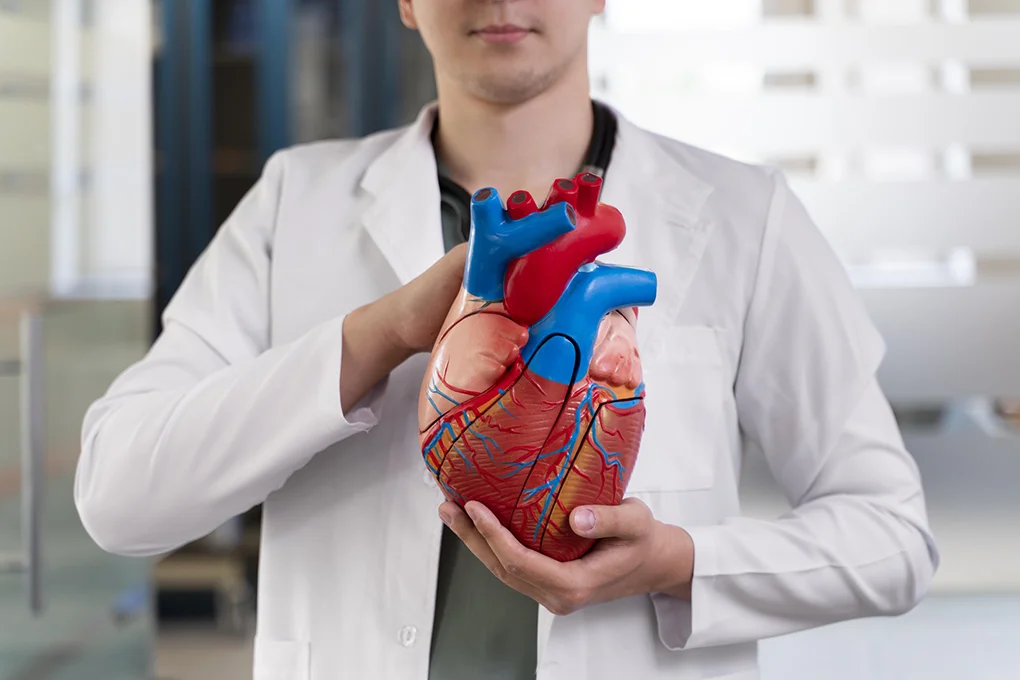Which Cardiologist Do I Need to See? A Guide to Cardiology Specialties
When your GP refers you to a cardiologist, you might be surprised to learn there’s more than one type. Cardiology is a diverse medical field with specialists who focus on everything from diagnosing heart rhythm disorders to performing life-saving surgery. But with so many types of heart doctors out there, how do you know which one is right for you?

At Cardiology Specialists Melbourne, we’re here to help you understand the different types of cardiologists—and which one you may need to see depending on your condition.
Why You Might Need a Cardiologist
Your GP might refer you to a cardiologist if you’re experiencing symptoms such as:
- Chest pain or pressure
- Shortness of breath
- Palpitations or irregular heartbeats
- Dizziness or fainting
- High blood pressure or cholesterol
- A family history of heart disease
Depending on your symptoms and test results, you may be referred to a general cardiologist first or directly to a sub-specialist. Let’s explore the different types of cardiologists and what they do.
1. Clinical Cardiologist (General Cardiologist)
This is usually your first point of contact when referred for heart-related issues. A clinical cardiologist diagnoses and manages common cardiac conditions, such as:
- Coronary artery disease
- Hypertension
- Heart failure
- Valve problems
- Atrial fibrillation and other arrhythmias
They perform and interpret tests like ECGs, echocardiograms, stress tests, and Holter monitors. If more specialised treatment is needed, they may refer you to one of the following cardiology sub-specialists.
2. Interventional Cardiologist
An interventional cardiologist performs minimally invasive procedures to diagnose and treat heart conditions, particularly those involving blocked or narrowed arteries.
Common procedures include:
- Coronary angiography (imaging of heart arteries)
- Coronary angioplasty and stenting
- Balloon valvuloplasty
- Closure of holes in the heart
You may see an interventional cardiologist if you’ve had a heart attack or if imaging reveals narrowing in your arteries.
3. Electrophysiologist (EP Cardiologist)
Electrophysiologists specialise in the electrical system of the heart. If you have irregular heart rhythms (arrhythmias), your clinical cardiologist may refer you to an EP.
They diagnose and treat conditions such as:
- Atrial fibrillation
- Supraventricular tachycardia (SVT)
- Ventricular tachycardia
- Bradycardia (slow heart rhythm)
Common procedures include:
- Electrophysiology studies (EPS)
- Cardiac ablation
- Pacemaker or defibrillator (ICD) implantation
An EP cardiologist plays a crucial role in managing rhythm-related symptoms like palpitations, fainting spells, or an unusually fast or slow heartbeat.
4. Cardiothoracic Surgeon
A cardiothoracic surgeon is a heart surgeon, not a cardiologist—but they work closely with the cardiology team. If your condition requires surgery, such as:
- Coronary artery bypass grafting (CABG)
- Heart valve repair or replacement
- Repair of congenital heart defects
- Heart or lung transplants
you may be referred to a cardiothoracic surgeon.
These surgeons perform open-heart surgeries or minimally invasive operations depending on the case.
5. Heart Failure Specialist
Heart failure specialists focus on patients with advanced or chronic heart failure—a condition where the heart can’t pump blood effectively.
You might be referred to one if:
- You’re not responding to standard heart failure treatment
- You need evaluation for a ventricular assist device (VAD)
- You may be a candidate for heart transplant
They are experts in adjusting medications, fluid management, and monitoring progressive heart disease.
6. Congenital Heart Disease Specialist
Congenital heart disease specialists care for patients born with structural heart defects. Some people are diagnosed at birth, while others are not diagnosed until adulthood.
These specialists:
- Monitor long-term complications of childhood heart surgery
- Manage adult congenital heart disease (ACHD)
- Coordinate care for pregnant women with congenital heart conditions
They often work in multi-disciplinary teams for lifelong management.
7. Preventive Cardiologist
Preventive cardiologists help you reduce your risk of heart disease—especially if you have a strong family history or multiple risk factors like:
- High blood pressure
- High cholesterol
- Diabetes
- Obesity
- Smoking history
They focus on lifestyle modification, early screening, and medical treatment to prevent future cardiac events.
Which Cardiologist Is Right for You?
Here’s a simplified breakdown based on symptoms or diagnosis:
| Symptom/Condition | See This Type of Cardiologist |
| Chest pain, high blood pressure | Clinical or Interventional Cardiologist |
| Heart attack | Interventional Cardiologist |
| Irregular heartbeat or fainting | Electrophysiologist |
| Heart surgery required | Cardiothoracic Surgeon |
| Chronic breathlessness, swelling | Heart Failure Specialist |
| Known congenital heart defect | Congenital Heart Disease Specialist |
| High risk but no disease yet | Preventive Cardiologist |
Your Heart, in Expert Hands
At Cardiology Specialists Melbourne, our multidisciplinary team includes all major cardiology sub-specialists, so no matter your heart concern, you’re in the right place. We collaborate to provide tailored care—whether you need diagnosis, lifestyle support, advanced procedures, or surgery.
If you’re unsure where to start, book a consultation with one of our clinical cardiologists. We’ll guide you every step of the way toward better heart health.
Need to see a cardiologist?
Book an appointment with Cardiology Specialists Melbourne today and get the right care for your heart, from the right expert.
